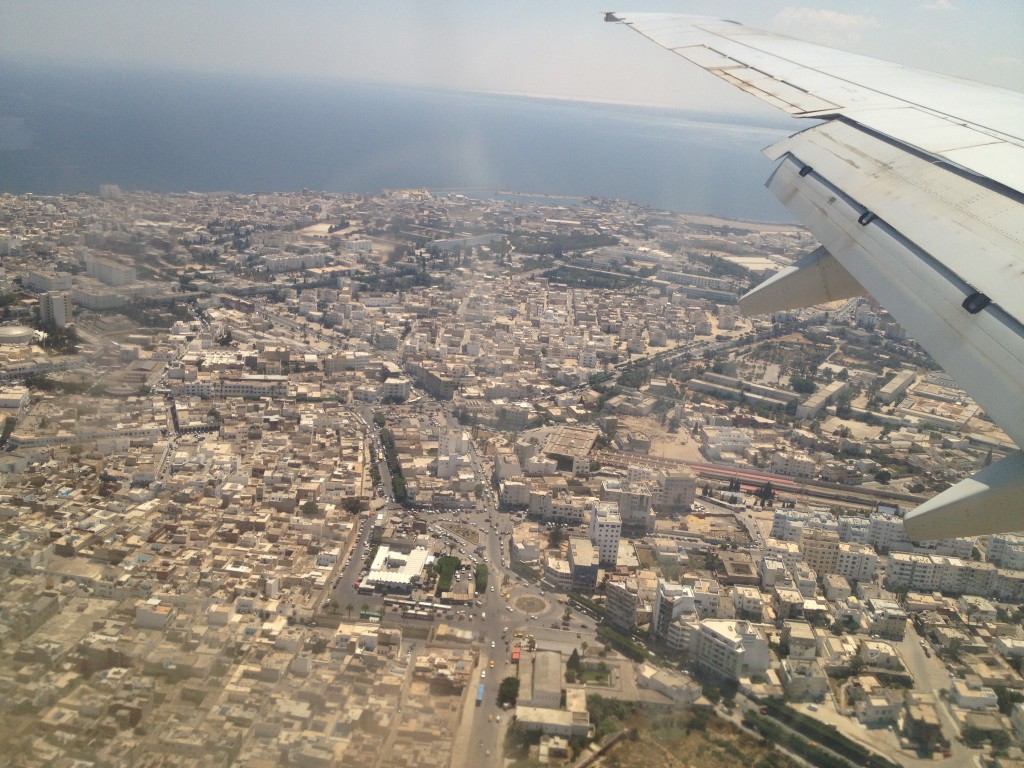 I arrived in Monastir, Tunisia on a scorching, hot day. It was about noon. And as I walked out of customs into the main foyer of the airport, two of my dear friends greeted me with smiles. My adventure had begun!
I arrived in Monastir, Tunisia on a scorching, hot day. It was about noon. And as I walked out of customs into the main foyer of the airport, two of my dear friends greeted me with smiles. My adventure had begun!
The first order of business was to drop my bags off at the hotel. Second was to drive to lunch. And the third, for me, was to learn something in Arabic.
Whenever I travel, it is very important to me to learn at least basic greetings and a few key phrases in the local language. That is because doing so gives me a way to connect with people I meet and a way to show respect for their culture.
I like to start the process as soon as I arrive. And this summer, my trip to Tunisia provided no exception.
So as we drove to lunch, I asked my friend to teach me a practical phrase in Arabic that I could use during the day. And she said, “Here’s one you’ll need, atini dabusa meh. It means bring me a bottle of water.” I could say it to a waiter in a restaurant or to a friend.
Atini means “bring me or give me”. Dabusa means “bottle”. And meh, means “water”.
My friend also taught me how to say thank you in Tunisian Arabic. All over the Arabic speaking world you can say “Shukran” for thank you. But in Tunisia, people also say “Iy-shek.”
“Atini dabusa meh. Atini dabusa meh. Atini dabusa meh. Iy-shek Iy-shek Iy-shek.” I kept repeating the phrases in my head. I said them out loud a few times. My friends laughed at me and corrected my pronunciation.
At lunch, I wanted to ask the waiter to “atini dabusa meh.” But I couldn’t muster up the courage just yet. What I did do was try out my, “Iy-shek” every time he came to the table.
By the second day of the trip, I had attempted to say “atini dabusa meh” to a waiter. He didn’t understand me and my friend stepped in to help. I must have spoken too softly. But I wasn’t discouraged. I tried at the next meal and succeeded. And on the 5th day of my trip I said, Atini dabusa meh, Iy-shek. And the waiter responded, launching into a full conversation in Arabic.
I thought, “Woah, woah, woah, buddy. That’s all I got!” But it was very flattering to think I had succeeded in my accent to the point that this guy thought I could speak Arabic for real.
This example of “Atini dabusa meh” may not be the best example for what I am trying to say here. But the moments I live for in travel, are when I am able to break through a threshold and escalate my interactions from tourist-to-local to simply human-to-human. And often learning a little bit of the local language gets me there much faster.
There’s my dabusa meh!
P.S. The Arabic language has many different dialects, so I don’t know if Atini dabusa meh would work anywhere other than in Tunisia. In Tunisia, they speak a dialect of Arabic as well as French.

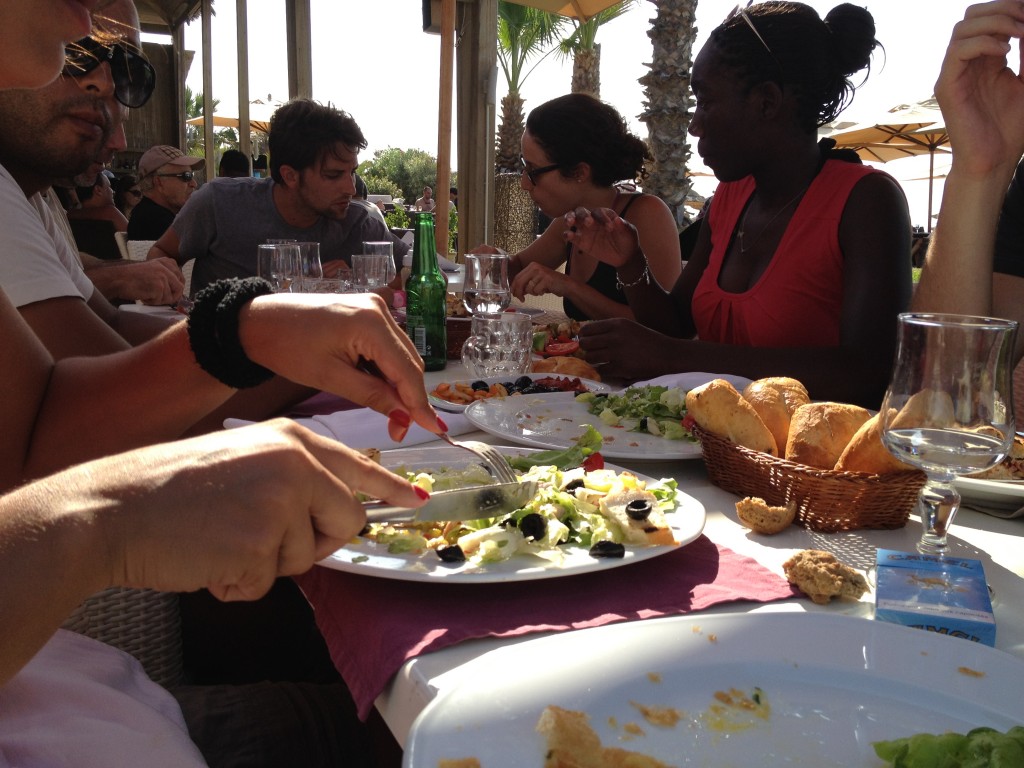
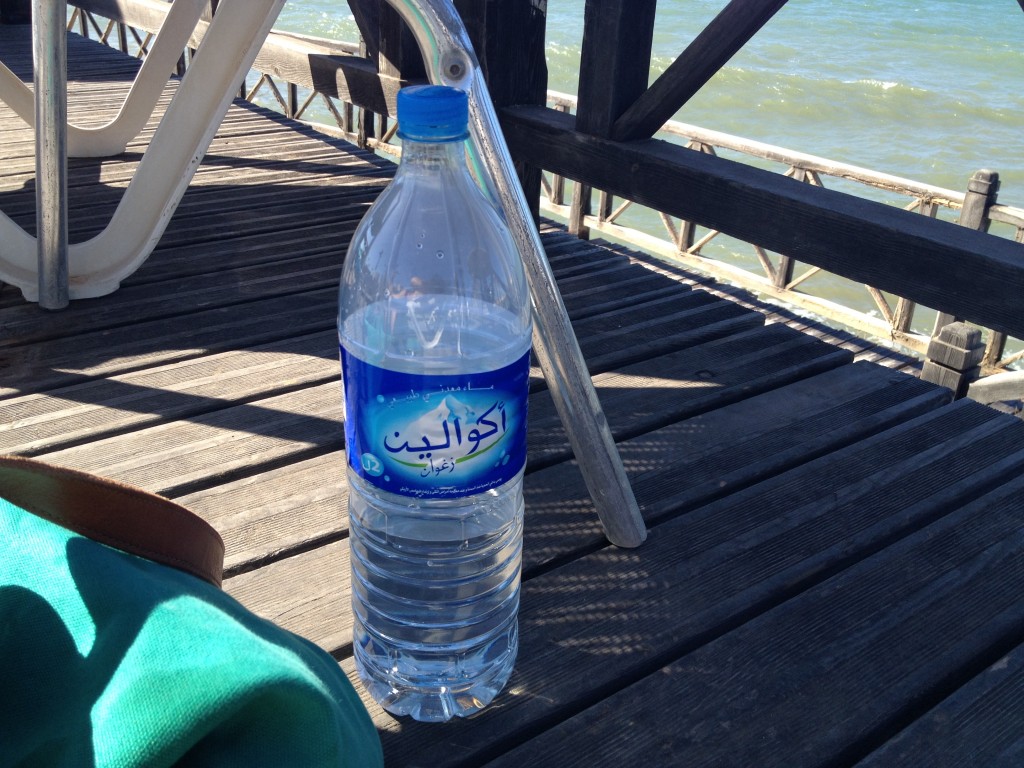
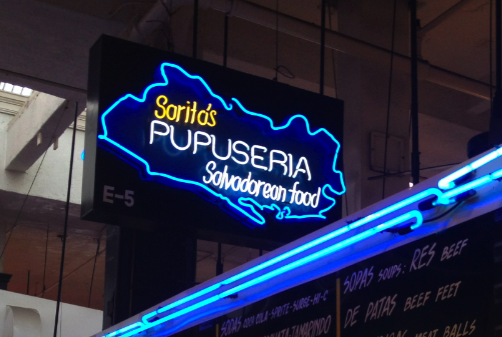

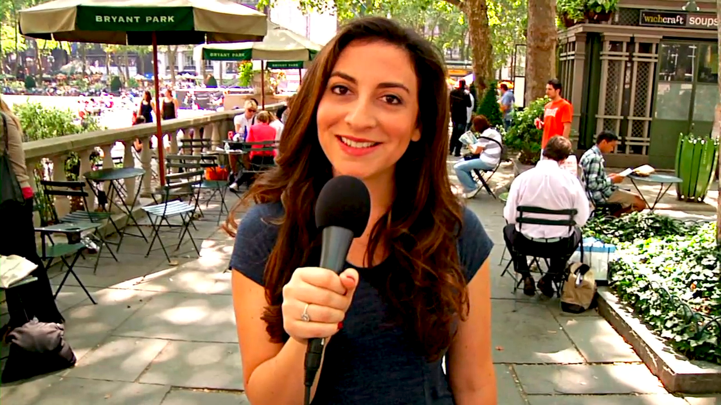
trevor.kirschner
October 8, 2012 at 1:20 pmVery cool, Kate! Everyone should follow your tips. Keep ’em coming.
kate
October 15, 2012 at 3:35 pmThank you! I will 🙂
Ameliage Wedding planner
November 5, 2012 at 9:42 amExcellent !
Shawna Raska-Ayari
December 9, 2015 at 3:48 amNot sure what Ly-shek is …in Tunisia it’s aychek or ayshek or 3aychek or 3ayshek are the same
Shawna Raska-Ayari
December 9, 2015 at 3:48 amNot sure what Ly-shek is …in Tunisia it’s aychek or ayshek or 3aychek or 3ayshek are the same
travelwithkate
December 9, 2015 at 4:06 amMy way of writing might have been misleading. I was capitalizing the word: iy-shek…(starting with an i) but your spellings do seem more accurate. Thanks for helping to specify!